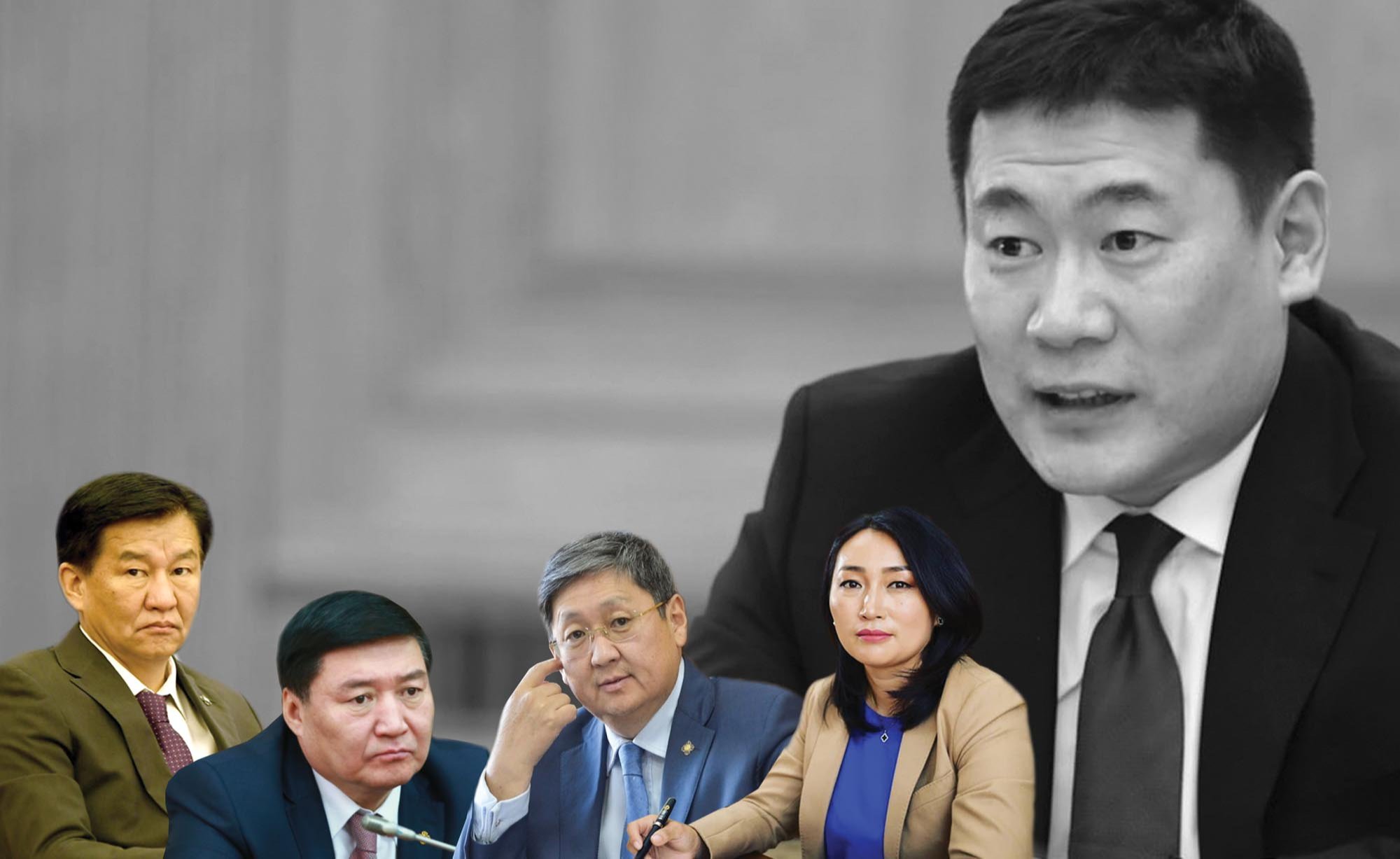
The Mongolian Mining Journal /Jan.2023/
G. Iderkhangai
These are days when the public and the authorities continue searching for “coal thieves”, when the demonstrations declined, when the government appointed new ministers, when the opposition elected a new leader, and when the Parliament closed its autumn session after passing a law that encroached on the freedom of speech of citizens.
Prime Minister L. Oyun-Erdene, who, thanks to constitutional amendments, has the right to change cabinet members “at his discretion,” appointed four ministers and five deputy ministers (5 January). Deputy Prime Minister and Minister of Economic Development Ch. Khurelbaatar, Minister of Revival of Border Checkpoints Kh. Bulgantuya, Minister of Construction and Urban Development C. Davaasuren and Health Minister S. Chinzorig were nominated and appointed with the “speed of light” at a meeting of the MPP Steering Committee.
Of these four ministers, Kh. Bulgantuya, head of the MPP group and the new minister in charge of port revitalization, has perhaps the more innovative approach and energy of a young person. The Prime Minister said she is the right person to implement the port revitalization policy under the New Revival Policy at the national level and increase coal exports through the Gashuunsukhait-Gantsmod, Khangi-Mandal and Shiveehuren-Sekhee border crossings to 45-50 million tons. He promises to “fight the theft of coal and natural resources by strengthening the law”. Read journalist C. Elbegsaihan’s article about the minister’s great responsibility to revive the ports.
In addition to the ministers, the government also appointed its deputy ministers. O. Tsendsuren, the former head of the Department of Strategic Policy and Planning of the Ministry of Mining and Heavy Industry (MMHI), has returned to the position of Deputy Minister of the same Ministry (Mongolian People’s Party quotas). Shortly after the ministers were appointed, the government held a regular meeting (11 January 2023) and dismissed the state secretaries of 6 ministries and the heads of 17 agencies due to the suspension of the Anti-Pandemic Act. Among them were the state secretary of MMHI B. Byambadagva and the head of the Mineral Resources and Petroleum Authority of Mongolia (MRPAM) L. Bayarmandal. Not only the state secretary, appointed three months ago, and L. Bayarmandal, appointed a year ago (12 January 2022) were released, but also the heads of departments of line ministries were replaced.
Every time the organizational structure changes and short-term appointments are made in the mining industry, it has become “natural” that new policies, confusing decisions and unclear actions will follow. This is a critical time when the revised draft of the Minerals Law is being discussed behind closed doors in the relevant ministry and is being prepared for submission to the spring session of Parliament. The Democratic Party, which maintains its position as the opposition party for the 2024 parliamentary elections held an extraordinary meeting of the National Policy Committee (19 January) and elected L. Gantumur, former Minister of Education, Culture, and Science. Once approved by the National Assembly, he will officially become the leader of the party.
Until then, there is a risk that members of the Democratic Party will start fighting among themselves in the run-up to the election. In the midst of these heated political events, Parliament quickly approved the Law on the Protection of Human Rights in Social Media, presented by Minister of Electronic Development and Communications N. Uchral, which was widely criticized by the public and the media. Although the authorities explain that this law does not violate the freedom of the press, it should be noted that it was adopted in violation of the Law on Legislation. The revised draft of the Minerals Law is also being discussed behind closed doors in violation of the Law on Legislation. There are fears that this law might be approved in the same way in an urgent manner.
Under the New Revival Policy, the Oyun-Erdene government continues to move toward its goals in spite of mistakes and difficulties. In 2023, 26 state-owned companies are planning an IPO. However, the public still disagrees with 34% of these companies, and a 51:49 privatization could lead to public control, researchers told MMJ. Another problem in the management of state-owned companies is the remuneration of directors and the risk of corruption. Journalist Z.Tselmeg noted in a data-based article that the salaries and bonuses of state-owned mining companies, which amount to billions of MNT, are one of the causes of corruption.
In order to improve the management of the state-owned company and eliminate the theft deeply rooted in the company, the coal from the Tavantolgoi deposit was sold for the first time on the Mongolian Stock Exchange, which was the main event of the new year. Erdenes Tavantolgoi will continue the work started by Energy Resources LLC. Head of the Securities Division of the Financial Regulatory Commission, B. Dulguun, explained in an interview with journalist J. Munkhtsetseg that, in any case, the main policy of this government is to sell coal at border prices through open auctions.
Just because the Law on Mineral Commodity Exchange has been approved, it doesn’t mean that everything will be sorted out. There are many logistical difficulties that need to be addressed. Parliament has long announced that it will urgently debate a primary law on state and local companies. It is possible to prevent the theft of national wealth by solving many issues, such as disclosing large contracts concluded behind closed doors, ensuring the fairness of tenders announced by Erdenes Tavantolgoi, and organizing the transportation of coal for export by rail.
In this edition of the Mongolian Mining Journal, we present to the reader the positions and opinions of relevant parties regarding the management reform of state-owned companies.